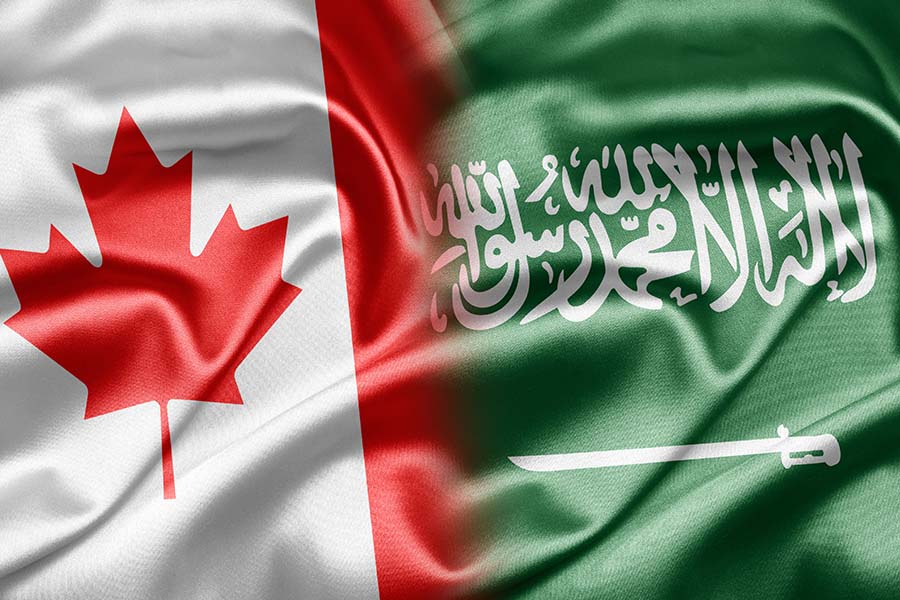
By Umer Karim, Doctoral Researcher
School of Government and Society, University of Birmingham
The Saudi-Canadian tensions that started from a string of tweets from the Canadian foreign minister and subsequently by the Canadian Embassy in Saudi Arabia has now developed into a full fledged diplomatic spat. With Saudi Arabia declaring Canadian Ambassador to the Kingdom as persona non grata and calling back its own ambassador, bilateral ties practically stand frozen between the two states.
Saudi Arabia responded to the remarks of the Canadian Foreign Minister by not only ending its trade engagements with the North American country but also transferring Saudi students and doctors based in Canada to other countries. The diplomatic crisis centers around the detention of Samar Badawi, a women’s rights activist, while Saudi authorities consider her arrest perfectly under the legal ambit.
This isn’t the first time that Saudi Arabia has been apprehensive of such criticisms centered on its internal affairs arising from the countries of Global North. Saudi ties with Sweden and Germany had taken a similar hit, and while the relationship with Sweden got back on track following a formal apology, there has been no improvement in the state of Saudi-German ties. This provides perspective on the importance of the new Saudi national and political identity, developed under the leadership of King Salman and Crown Prince Mohammad Bin Salman. Any critique that clouds this new international outlook characterized by an economic transformation plan “Vision 2030” and social liberalization initiatives like the greater role of women in the public sphere, receives a fierce contestation from the Saudi state. Saudi leadership understands that in order to keep political engagement with international actors out of the domain of its domestic politics, it has to take a strong stand, which discourages others to pursue a similar path.
When it comes to discussing critical political issues or communicating concerns about specific issues relating to human rights, there has always remained a certain modus operandi. This method mostly revolved around the use of personal diplomacy between the head of states and their foreign affairs teams. Highlighting the issues in a forceful but respectable manner, (which doesn’t give the impression of impinging upon the national sovereignty of a state), has actually been relatively more productive. Employing any other domain especially social media to engage in such sensitive issues can be only counter-productive. This attempt actually backfired with Saudi Arabia considering it blatant interference in its internal affairs.
In addition to understanding the unique political context of a state like Saudi Arabia, decision makers in upper echelons of power in the Western world also have to be mindful of the importance of cultural specificities. The initial Twitter row may have not escalated, had the Canadian Embassy in Saudi Arabia not resorted to tweeting the sentiments of its foreign minister in Arabic. The very optics of such an action are negative and create an impression of a foreign power interfering within the internal domain of a sovereign nation, while not contributing in any manner to the original motive of the whole exercise.
Since, Saudi Arabia remains a prime model of a rentier state, a large section of its citizenry depends on the state not only for its living but also for the provision of basic necessities like health and education. Owing to this unique structural feature, Saudi state is virtually embedded in the social sphere and has been able to go through its measures against Canada without any hindrance. With the lack of any critical political or commercial interdependence and a significant rise of stakes on both sides, the crisis looks to persist for quite some time unless one sides backs out.
